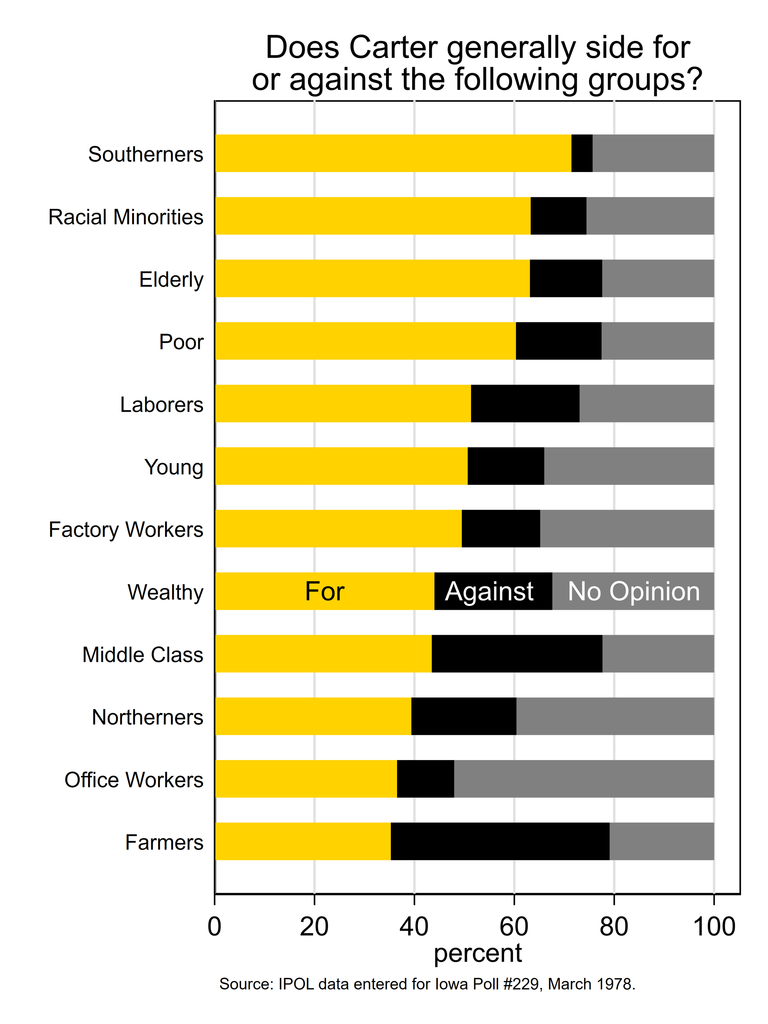Data restored from a 1978 Iowa Poll reveals that Iowans believed President Carter sided with the poor and factory workers more than he did with the wealthy, middle class, and farmers. The question asked was “Does Carter generally side for or against the following groups?” and was followed by a dozen social groups or occupations. Respondents indicated that they viewed Carter as siding with Southern states at nearly double the rate of Northern states and the poor at nearly fifteen percentage points higher than the wealthy. Nearly half saw him siding with laborers and factory workers while about thirty-five percent saw him siding with office workers and farmers. Notably, farmers had the lowest level of perceived support and the highest level of perceived opposition and were the only group for which perceived opposition exceeded support.

There was some variation based on respondent’s age. On the questions of Carter's support for each class we saw that 65% of 50–64-year-olds think that Carter is doing a good job for poor and lower-class families. In the middle-class section, we see a dip in percentages across all ages compared to those who said he sides with lower-class families. Finally, we don't see over 50% of any age range saying Carter supports wealthy families. When asked whether Carter supports certain occupations, those ages 18-29 were most likely to say Carter is supportive of their occupations. Participants in the 65+ group were the least likely to say Carter is supportive across all occupations and had the greatest percentage of "no opinion" responses regarding factory and office workers. Comparatively, when discussing farmers, this group had the highest percentage of "against" responses (50.36%) among all age groups.
Iowa Poll #229, conducted by the Des Moines Register, was administered to a random sample of Iowans in March 1978. In addition to the questions about President Carter, the survey asked respondents their opinions on a wide variety of topics, including the creation of an independent Palestinian state, the effects of high inflation, LGBTQ+ individuals holding different positions, and entertainment consumption. Understanding Iowans’ past opinions on these topics can help us understand how perspectives have changed and what ideas have remained popular. IPOL has also been working with UI Libraries and the Des Moines Register to restore data from dozens of Iowa Polls from the 1960s to early 1980s. More information about the project can be found here. We are working to release a full report on our findings as we analyze additional questions.